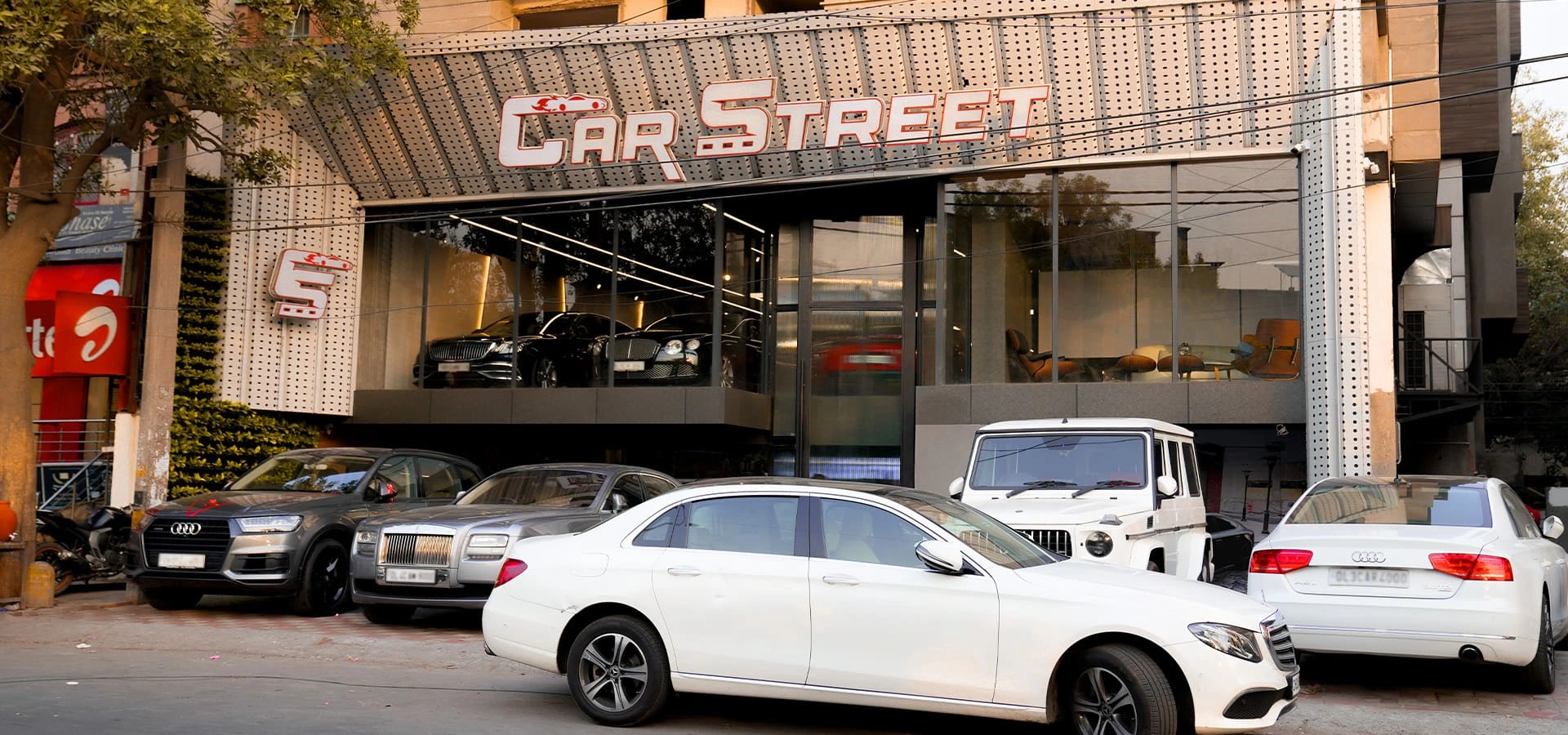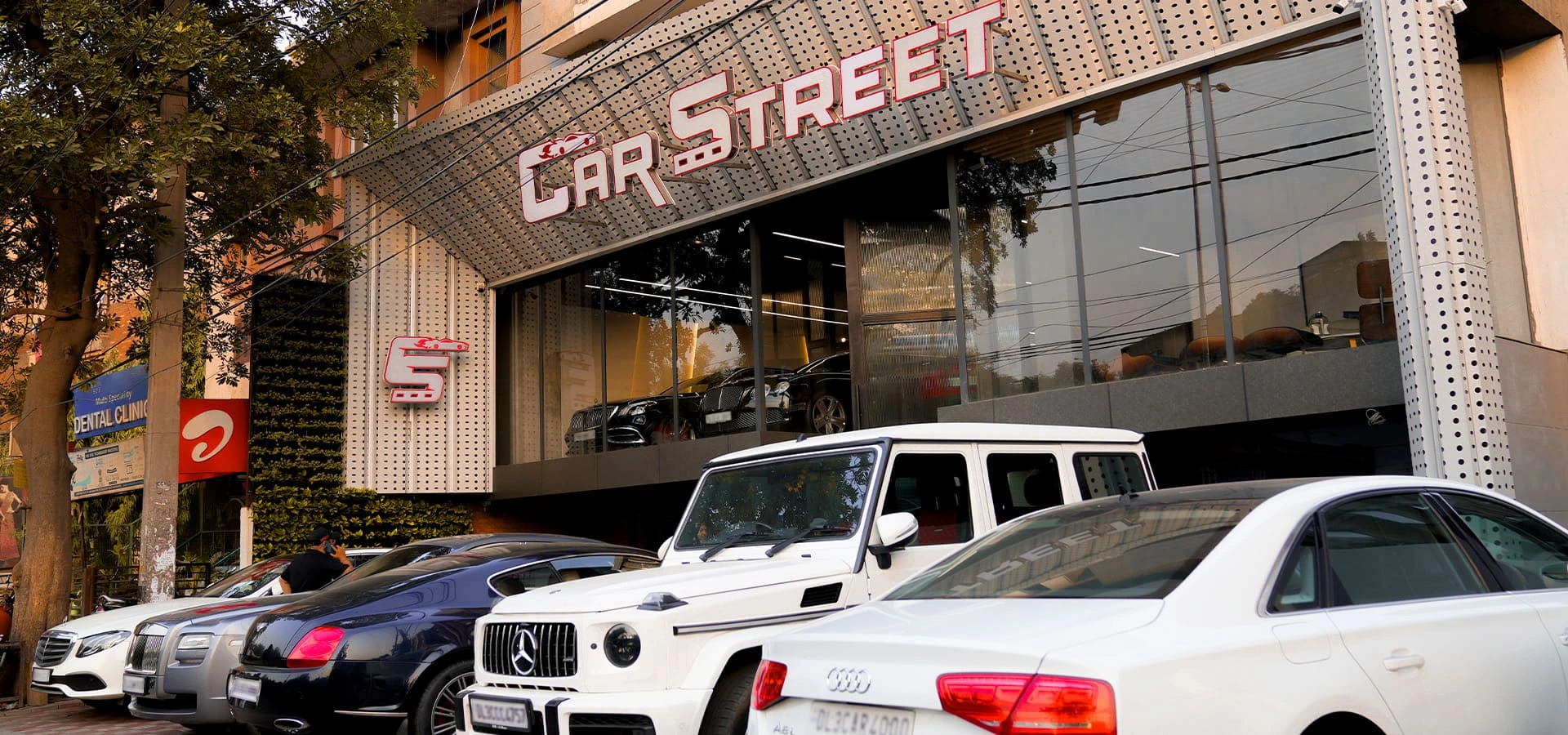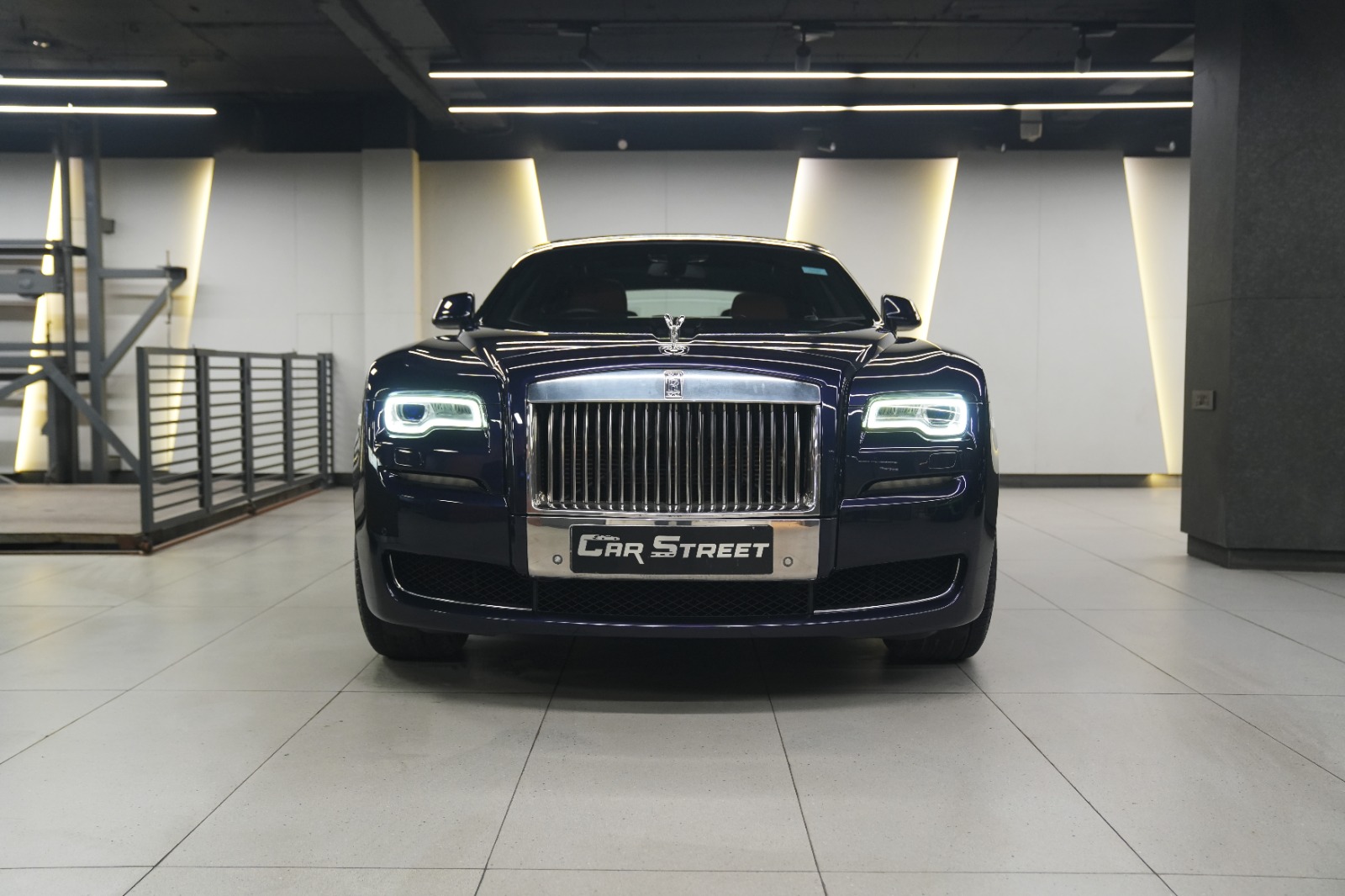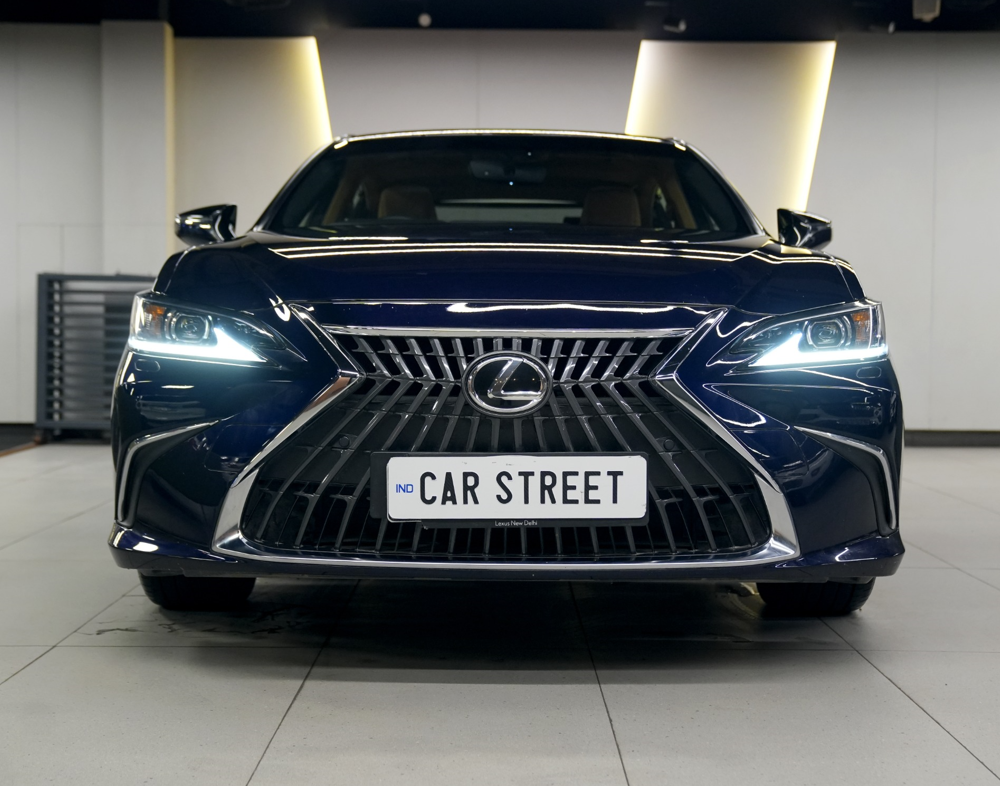Delhi NCR is one of the best centres of used luxury cars with the best pre-owned luxury cars showrooms targeting the elite consumers. Car Street India has a wide collectors market with the best pre-owned luxury cars in India, which provide the buyer in the second hand luxury market with accurate choices that match their exquisite preferences. These buyers are quality conscious and willing to spend on motor cars of reliable sources that are reputed in terms of credibility, hassle-free dealings, and holistic pre- and after sales services.
Located at A-16, Naraina Vihar, New Delhi - 110028 (with an additional outlet at E-30, Mini Naraina Vihar), Car Street India showcases certified stock from elite brands like Audi, Bentley, BMW, Rolls-Royce, Aston Martin, DC, Ferrari, Ford, Jaguar, Jeep, Kia, Lamborghini, Land Rover, Lexus, Maserati, Maybach, Mercedes-Benz, Mercedes-AMG, MINI, Nissan, Porsche, and Volvo. This makes it effortless to secure your ideal used luxury car with assured low maintenance and best price guarantees.
Best Pre-Owned Luxury Cars for Sale in Delhi
Demand for luxury cars surges across India, but new models often strain budgets. Car Street India delivers unbeatable deals on second hand luxury cars in Delhi, featuring vehicles in pristine condition with valid insurance and documentation. Operating from West Delhi with pan-India reach and a Mumbai showroom, Car Street ensures access to rare gems in the pre-owned luxury market—simply WhatsApp your dream car for sourcing.
Used Mercedes-Benz Cars in Delhi
Mercedes-Benz excellence is luxury and Car Street has an exclusive range of certified pre-owned models.
Mercedes-Benz S-Class
Explore the Mercedes-Benz S-Class in Car Street at premium pricing, the long form will provide ample room to the leg, the sophisticated air suspension, panorama sun roof, and driving assist to unparalleled comfort.
Mercedes-Benz GLS
The Mercedes-Benz GLS 4MATIC SUV excels on and off-road with superior handling, making it a top choice among Car Street's verified pre-owned luxury SUVs.
Mercedes-Benz CLA
Opt for the stylish Mercedes-Benz CLA with its sleek red exteriors, plush interiors, and efficient petrol engine to minimize fuel costs.
Used BMW Cars in Delhi
Car Street's BMW selection promises performance without compromise, all rigorously inspected.
BMW 7 Series M-Sport
The BMW 740i M-Sport impresses with striking exteriors, an 8K theater screen featuring Amazon Fire TV, and panoramic moonroof for head-turning luxury.
BMW 5 Series M-Sport
The pre-owned BMW 530i M-Sport from the 5 Series delivers petrol power, adaptive automatic transmission, and reverse camera for versatile driving.
BMW X6 xDrive 40i M-Sport
Experience the BMW X6's bold aesthetics, digital odometer, navigation, central locking, and smooth automatic shifts in Car Street's certified stock.
Used Audi Cars in Delhi
Audi e-tron 50 Quattro
The electric Audi e-tron 50 Quattro captivates with dynamic exteriors, electronic steering, air suspension, and wireless charging.
Audi Q7 55 TFSI
Quattro Car Street's Audi Q7 Technology offers 7 drive modes for effortless adaptation to any terrain.
Audi Q5 45 TFSI
The white Audi Q5 SUV features a petrol engine, panoramic sunroof, automatic transmission, and cockpit navigation for efficiency and style.
Used Land Rover & Range Rover Cars in Delhi
Conquer roads with Car Street's robust Range Rover variants.
Range Rover Autobiography
Pre-owned Range Rovers deliver off-road prowess, luxury seating, and advanced tech for elite adventures.
Land Rover Defender
The Land Rover Defender combines rugged capability with premium interiors, available certified at competitive rates.
Used Porsche Cars in Delhi
Porsche enthusiasts find pure thrill in Car Street's verified sports cars.
Porsche 911 Carrera
Iconic performance meets precision engineering in Car Street's pre-owned Porsche 911 lineup.
Porsche Cayenne Turbo
The Cayenne SUV blends speed, luxury, and all-terrain dominance.
Benefits of Buying Used Luxury Cars from Car Street India
Massive Savings Without Compromise
Secure used luxury cars debt-free from Car Street's best-price guarantees—no better deals exist for equivalent quality.
Superior Resale and Minimal Depreciation
Avoid new-car value drops; Car Street ensures optimal trade-in values through certified maintenance.
Expert After-Sales Support
Enjoy ongoing service guidance, warranties, and pan-India delivery with 6-month warranties and buy-back options.
Vast Inventory of Certified Stock
Over 100+ pre-owned luxury cars across sedans, SUVs, coupes, and exotics from 20+ brands, serving 2500+ satisfied clients nationwide.
Car Street India – Trust, Quality, and Transparency Guaranteed
Founded by visionary brothers in 2001 and formalized in 2015, Car Street revolutionized Delhi's pre-owned luxury market with core principles:
- 100% accident-free cars
- No odometer tampering
- Zero hidden costs or processing fees
- Fair, instant cash for sellers
- Free RC transfer in one visit
Seamless Financing and Insurance
Finance your dream via Car Street with low-interest EMIs, minimal down payments, and an online EMI calculator. Get hassle-free insurance from top providers with cashless claims.
Sell Your Car Effortlessly
Submit details online for instant valuation, free inspection, and same-day cash—stress-free across India.
Why Choose Car Street for Used Luxury Cars ?
Car Street's expert team in sales, finance, and operations delivers customized delivery and lifelong support. From Delhi NCR to Mumbai and beyond, own 21st-century luxury affordably. Call +91-7070707026 or visit today.
Frequently Asked Questions
How to buy a car at Car Street India?
Browse online, pay 10% to reserve, or visit A-16 Naraina Vihar for test drives.
How to sell my car?
Upload details for valuation; get free inspection and instant cash in one visit.
Are prices negotiable?
Contact for callbacks on custom deals.
Documents needed ?
PAN, Aadhaar, RC, insurance, PUC, Forms 29/30, address proof.
RC transfer process ?
Via Parivahan portal: OTP login, ownership transfer, fee payment, RTO submission.
Financing available?
Yes,low down payments, quick approvals, extended tenures from top banks.
Showroom locations?
Primary: New Delhi (Naraina Vihar); secondary: Mumbai; pan-India operations.
Test drives?
Available at showrooms,book now.
Starting prices?
From ₹20 Lakhs for certified luxury.
Top brands ?
Audi, BMW, Mercedes, Porsche, Lamborghini, Rolls-Royce, and more.
Worth buying used luxury ?
Absolutely, certified, maintained, insured, with warranties for peace of mind.








.jpeg)
.jpeg)
.jpeg)

.jpeg)
.jpeg)
.jpeg)
.jpeg)
.jpeg)

.jpeg)
.jpeg)

.jpeg)
.jpeg)

.jpeg)
.jpeg)














.webp)
.webp)
.webp)
.webp)